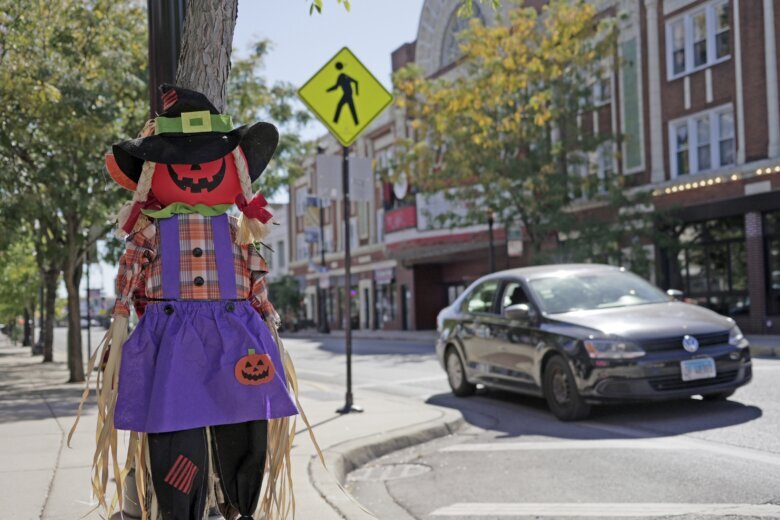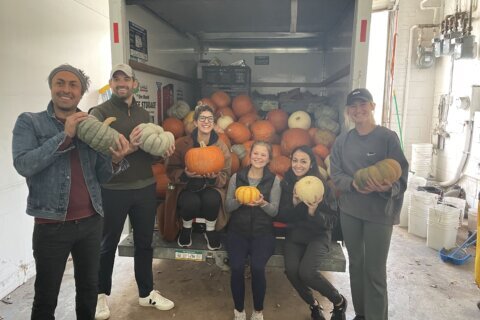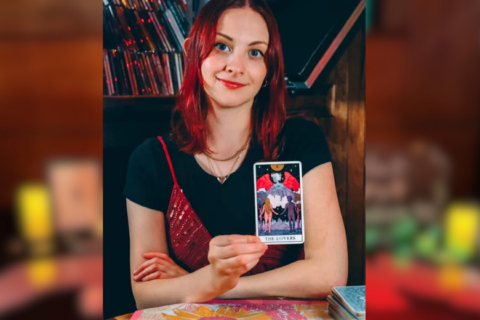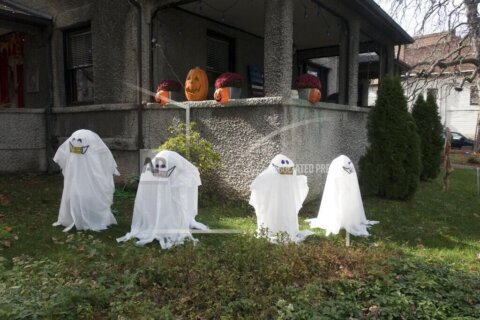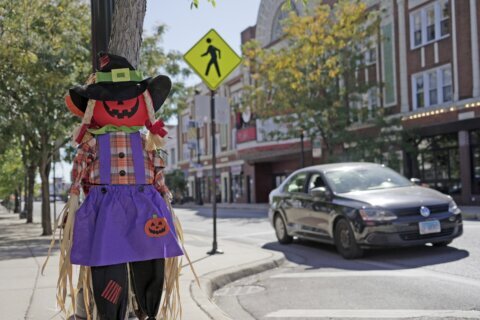
The scariest things lurking around the corner on Halloween aren’t monsters or ghosts.
According to doctors, it’s cars. Halloween is one of the deadliest days of the year for pedestrians, especially for kids.
“There’s a lot of focus on the risks of candy that might be a little misplaced,” said Britney Lombard, an injury prevention manager at Children’s Hospital Colorado. But one thing experts are sure of, she said, is an increase in child pedestrian fatalities on Halloween.
“There are a lot of things that they can do to mitigate those risks,” she said.
Here are some tips to make sure Halloween is safe and fun for everyone — from cars to costumes.
Walk defensively
An easy way to keep yourself and your kids out of harm’s way on Halloween is being aware of your surroundings, Lombard said.
That goes for drivers and pedestrians.
“We see a lot of distracted drivers who are on their phones, and we see a lot of distracted pedestrians who may have headphones in or (are) on their phone,” she said.
Kids under the age of 12 generally should be with adults when trick-or-treating. Older kids who are out by themselves should be aware of the rules of the road and practice being responsible pedestrians, she said. That includes staying off phones, making eye contact with drivers before crossing the road and using crosswalks and sidewalks.
Lombard also urged people to drive the speed limit, don’t drink and drive and pay close attention to the road — especially at night.
“There are going to be a lot of children out when it gets dark, and there is limited visibility,” she said.
Backing out of driveways can be particularly dangerous on Halloween with kids running from house to house. Lombard recommends rolling down your window to listen for children, as well as checking for them in all mirrors and reversing slowly.
Costume tips
Costumes can be fun and creative, but experts say they should also be safe.
Make sure costumes fit well, and avoid tripping hazards like capes or bulky get-ups that aren’t safe for car seats.
If your child’s costume includes a mask, make sure it fits well and they can see with it on. When in doubt, Lombard said, opt for face paint.
Wearing bright, reflective costumes is a good idea, too — try adding glow sticks or reflective tape.
Also consider non-flammable costumes, said Dr. Nicholas Algu, a pediatrician at Louisiana’s Ochsner Health. On the other side, if you decorate outside for Halloween, avoid long cords and open fire — just in case.
“A lot of kids are walking around, and there are going to be flames, candles, things like that,” he said. “It’s really easy to have an accident.”
Carve pumpkins safely
Jack o’ lanterns are practically synonymous with Halloween, but carving them can be dangerous.
To avoid accidents, Algu said to make sure the pumpkin is completely dry, use a marker to draw cut-outs beforehand and leave the carving to adults.
“You can get the kids to scoop up pumpkin seeds instead,” he said. “That way, they feel like they’re helping and doing a lot of stuff, but it’s safer for them.”
You can also forgo the carving entirely and attach things to the gourd to give your pumpkin some personality.
Be careful with candy and strangers
Sure, there are myths of doctored candy hurting people on Halloween.
But more importantly, Algu said, parents should consider telling their kids to avoid eating their stash until they get home in the case of any emergencies — like gooey, sticky or chunky candy that could cause young kids to choke.
And even though the call of candy might be strong, Halloween isn’t the night to explore new parts of town.
Algu recommends avoiding going inside homes, and sticking to houses with their lights on and places you know.
Even in familiar neighborhoods, it’s likely you’ll meet strangers — that’s why it’s important to stay with your group, he said, and use common sense to avoid sticky situations.
___
The Associated Press Health and Science Department receives support from the Robert Wood Johnson Foundation. The AP is solely responsible for all content.
Copyright © 2025 The Associated Press. All rights reserved. This material may not be published, broadcast, written or redistributed.

